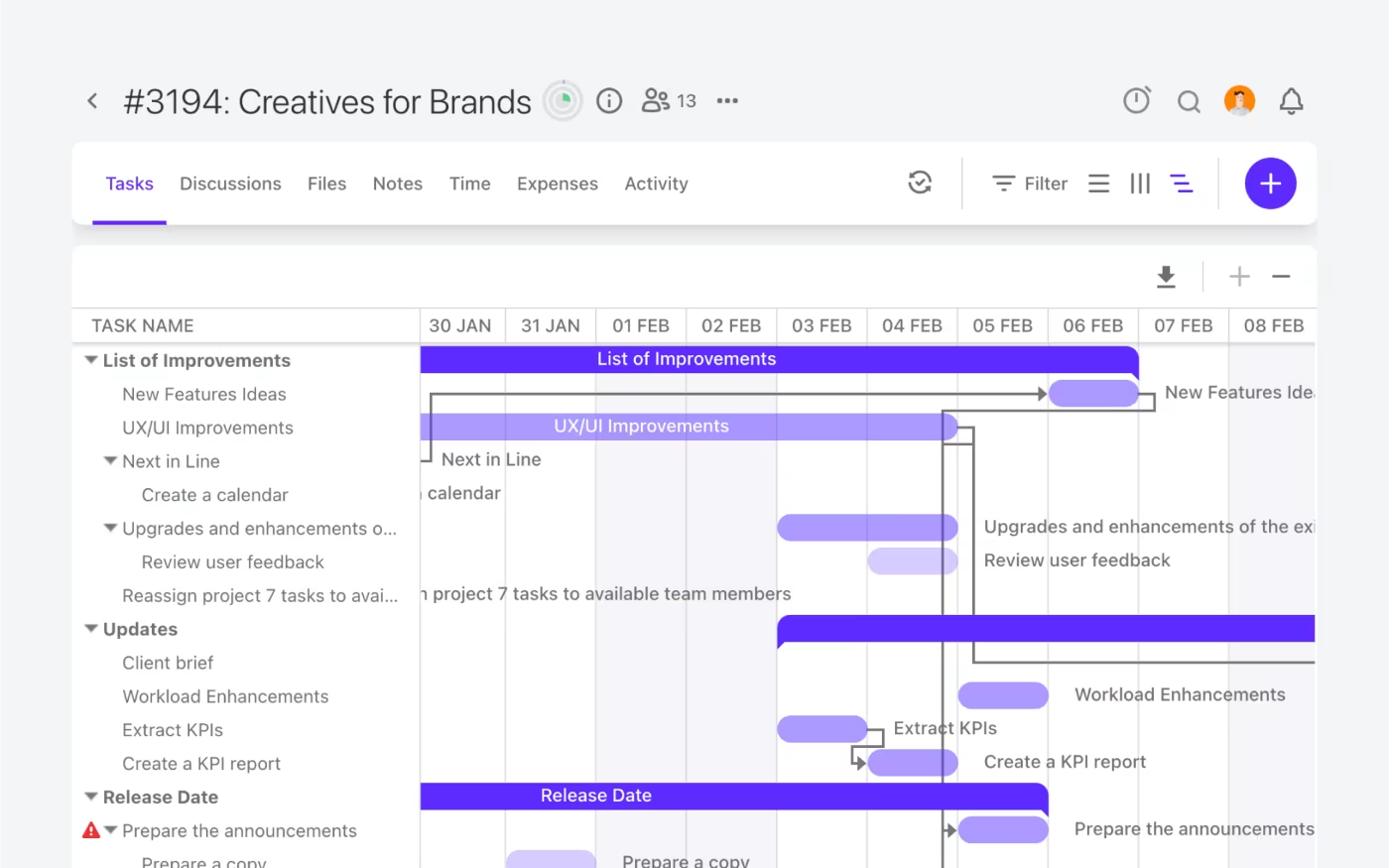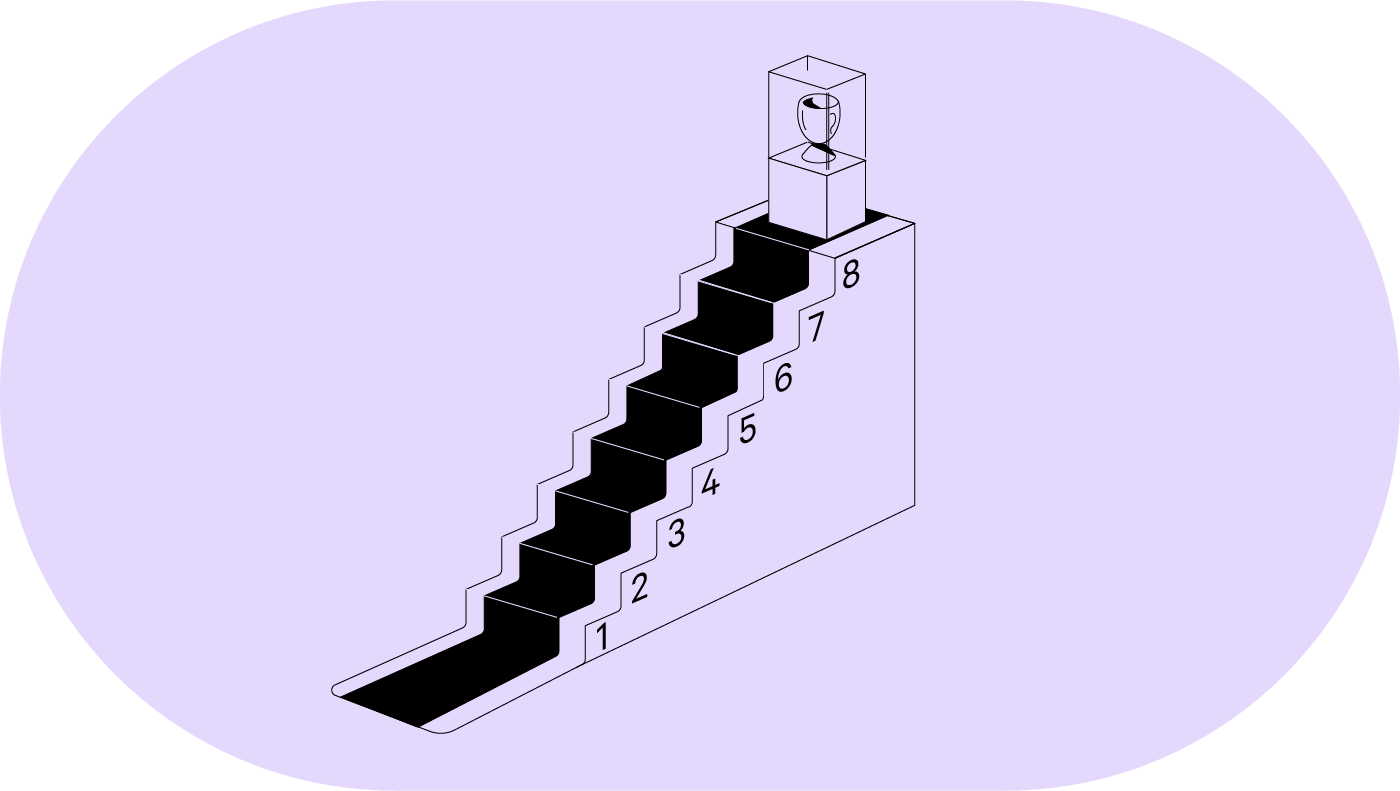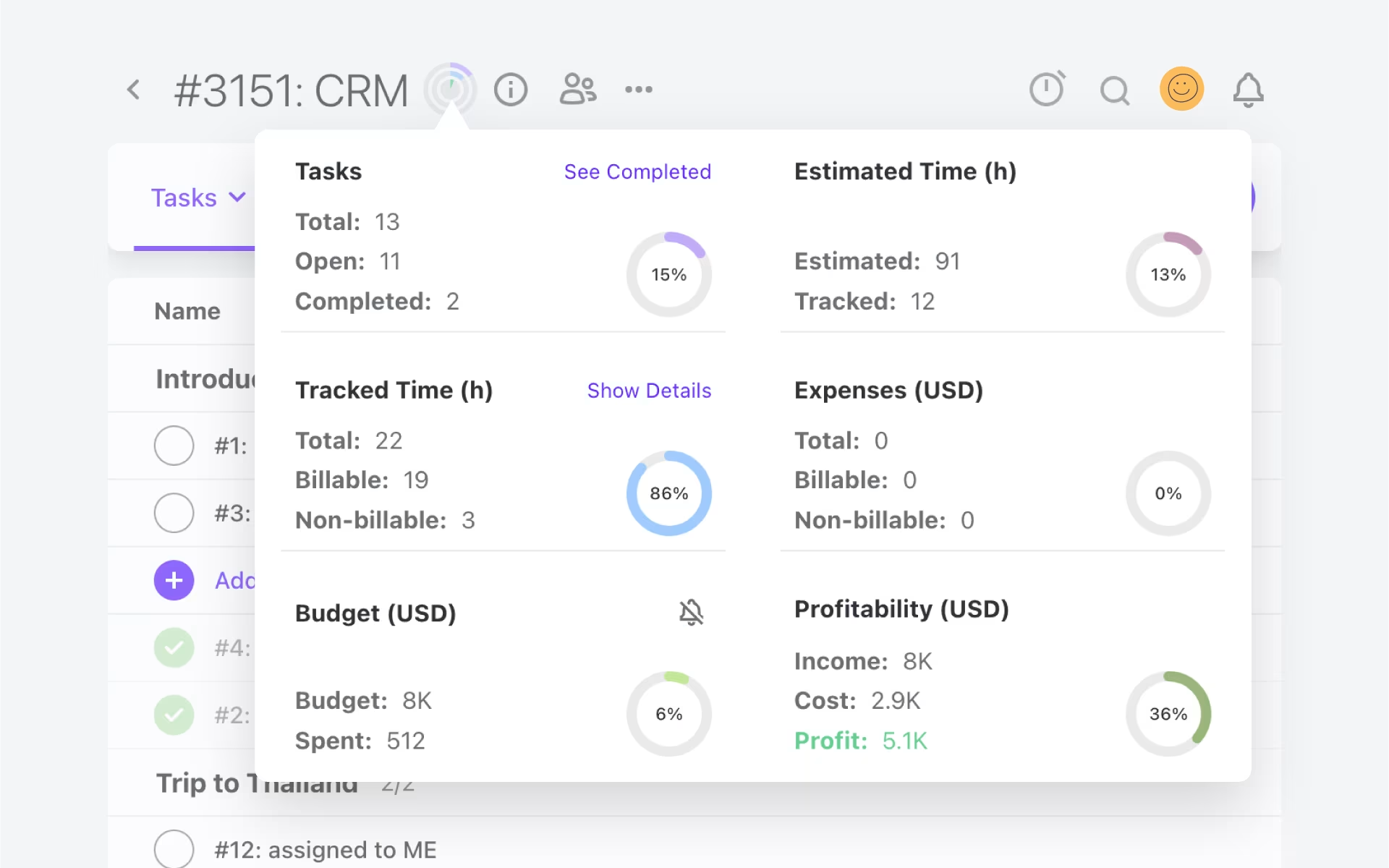We get it. Complex tasks and projects are hard work. That’s why we tend to avoid and put them off, for as long as humanly possible. And then, when we finally get to it, we end up scrambling at the last minute, only to deliver a total and utter shipwreck.
If you’re in the services industry, you know exactly what we’re talking about. You know what complex tasks look like because that’s what you do, day in, day out. But you probably also know what a shipwrecked project looks like. You also know every shipwreck is the result of a bad plan or an incompetent captain.
However, with the right mindset and a structured approach, making complex tasks completed tasks can be relatively smooth sailing. Find out how to break down tasks into manageable pieces and keep your crew on course all the way to client delivery!
1. Stop procrastinating, start unpacking
Step one is to stop procrastinating and start unpacking the complex large task. When we say start unpacking, we mean start doing actual work that involves chipping away at the task. We don’t mean going down a research rabbit hole to find more information, and we don’t mean planning your approach until the sun sets.
Here’s how you would start.
Make the complex task a challenging feat in disguise
Stop seeing your complex large task as the mountain you can’t climb. Embrace it. Shift your mindset and reframe it as an opportunity for growth. The moment you do this, you overcome the psychological stance holding you back. This is something that has been investigated and proven.
A study from MacEwan University found that students who were taught to switch to a growth mindset not only lowered their procrastination levels but also reduced unattainable perfectionism.
The other important thing that comes into play here is that a growth mindset also fosters resilience, which means you won’t stall and give up the moment a setback blocks your path. Instead, you will persist and persevere because you’ve positioned this as a learning opportunity.
Clarify your goal & identify blockers or gaps
Once you’re in a good headspace, it’s time to face the task, clarify what you want to achieve, and identify any blockers or gaps.
When we say clarify your complex task goal, what we actually mean is to understand the core purpose of the task, its context, and the impact or result you want to achieve.
Depending on the type of task you’re working on, the questions you need to answer will vary. However, the bare minimum you need to be clear on is:
- What is the expected outcome (product, deliverable, initiative, campaign)?
- What result or impact does the outcome need to deliver?
- What are the deadlines and budget constraints?
It’s also vital you not only spot any obstacles as early as possible but also work out what you will do with them. In most cases, you’ll have three choices:
- Fix them (ideal option if possible)
- Plan around them (if they can’t be fixed or avoided)
- Accept them as a given (if it’s something you can’t control)
2. Literally picture your deliverables & milestones in groups
Now for the fun part. Get yourself a pen and paper, a whiteboard, or whatever you like to use for brainstorming. It’s time to visualize your large task and identify your key milestones. Organizing your task in this way makes it easier to analyze and create a basic structure.
Use a mind map or diagram to group tasks
Mindmaps and diagrams are powerful techniques that help you see how small and big tasks are connected. Because mind mapping mirrors our brain’s natural associative thinking patterns, the method aligns perfectly to help us understand tasks better, and it’s one of the best methods for creatives.
On top of that, it also takes the challenging task out of your mind and transfers it to an external space, which frees up the mental capacity you need for planning and execution.
To mind-map your task:
- Anchor your task – Write the goal or purpose smack-bang in the centre of your mind map.
- Branch out – From your big anchor task, draw lines that lead to its major components.
- List tasks – For each major component, list all the tasks that come to mind that need to be completed.
Mark the trophy milestones
Believe it or not, you’ve just completed two of the hardest parts of breaking down complex tasks. Now it’s time to mark your small trophy wins that will lead to your final big win at the end.
For most small tasks, your milestones will be obvious. They may even be the major components you drew out from your anchor task. However, you may also have some key milestones within each of the major components. Key milestone can be identified by a couple of factors:
- Critical deliverables – These are actual documents, such as briefs and drafts for proofing or launches.
- Dependent deliverables – They can also be dependent deliverables.For example, before you write the copy for a website, you need to have a site map completed.
- Stakeholder or client deliverables – These are the things you need to send to stakeholders or clients for approvals.
Remember, your key milestones will be the small wins you chip away at. By achieving your key milestones, eventually leads you to accomplish your final goal.
3. Meticulously unravel large tasks, subtasks and dependencies
Now that you have a solid skeleton of your complex task that’s been broken down into groups, it’s time to meticulously drill down further. This is where breaking tasks truly begins.
Start with tasks & subtasks
For each task in your mindmap, unravel it further so you have a full and complete list of subtasks. Don’t assume you will remember every little thing when the time comes to take action, and don’t assume your team will figure it out either. Ask yourself: What are all the things that need to be done one by one to reach each of the milestones?
This removes ambiguity and lets you focus on taking action immediately.
Move on to spot dependencies and scheduling links
Next up is working out the task dependencies. In simple terms, these are tasks that are related. Any task that depends on another is a dependent task, which means it needs to be completed in a certain sequential order.
Skipping this step or overlooking any dependent tasks will cause chaos that results in bottlenecks, rework, and miscommunication.
So, go through your entire task list to:
- Highlight dependent tasks
- Record the order in which they need to be completed (for finish-to-start tasks)
- See if any tasks can be done at the same time (in parallel)
Because service business client work is rarely linear and there are usually several stakeholders and approvers for each project, mapping dependencies gives you foresight. You’ll know exactly which tasks, if delayed, will have a flow-on effect on other linked tasks. This means you can monitor them and have a plan to work around them so as to avoid scheduling mishaps.
It’s a good idea to use a Gantt chart or task management tool (like ActiveCollab’s timeline view) to map out all your dependencies.

4. Rope your tasks together, set deadlines & assign owners

Now that you’ve broken down your tasks and mapped out dependencies, it’s time to rope them together. Ideally, you’d do this in a project management tool like ActiveCollab.

Here, you need to pay close attention to set realistic deadlines and allocate tasks to the best people in your team.
Sequence your tasks in the right order
To get the right sequence of tasks, use logic and the dependencies you’ve already established. A couple of things you need to keep in consideration when landing your order of execution includes:
- Time or team constraints
- Individual capacities
- Task overlaps
Set realistic deadlines & handover to the right people
Next up is landing realistic deadlines. Here, again you need to consider:
- Actual effort and time such manageable tasks generally demand (you can use historical data to guide you)
- If you have the luxury of including buffer times (if so, include them, they could keep your schedule in tact)
- Whether or not you have certain client deadlines you need to align to
When you’ve figured all that out, it’s time to assign owners to every task. Service businesses like marketing agencies rarely deliver work where only one person is involved in a task. So if your tasks require collaboration, find ways to split tasks so ownership is clear-cut. This will make sure nothing falls through and everyone knows which part they need to deliver.
Another thing you should do here is clearly outline what good and done look like. If you use ActiveCollab to manage your projects and tasks, you have multiple options where you can include descriptions, attach documents, and hold discussions within individual tasks.
When you’ve done all that, it’s time to give yourself a pat on the back. Congratulations, you’ve just broken down your complex task into a clear map and schedule of actions that have owners and clearly defined deadlines for deliverables!
5. Be the task captain who navigates the stormiest schedule
Few project plans make it to the end in their original state. Clients may take longer to come back with feedback and approvals. Someone in the team might fall ill or be snatched up by the leadership team for a key client account emergency. All these things and more can take your plan and schedule off course.
But that doesn’t mean you’re heading for failure. It simply means you, as the captain, need to adapt your schedule and steer the ship to port.
Look out for issues and keep moving forward
The secret to a successful arrival lies in:
- Monitoring – Keep track of each task’s progress and delivery.
- Maneuvering – When something isn’t on track, don’t panic. Jump in with strategic and tactical solutions (reassign, resequence, renegotiate deadlines).
- Staying the course – Not giving up at any point, being determined to adapt and navigate even in chaos, right to the end.
Navigate unexpected changes, stay on course
Navigating a complex project successfully is all about keeping your eyes on the horizon. It’s also staying calm while you course-correct every storm that crosses your path.
To stay vigilant, ActiveCollab’s project management overview dashboards can be used to quickly see warning signs. Here you’ll have instant status summaries of a project’s task completion, budget spend, and estimated against tracked time.

When you know what’s not coming along as planned, what’s blocked, and what’s changed, you can jump in like a true leader and fix things. However, whenever you make changes to a plan, make sure you communicate it with your team.
Prevent complex task shipwrecks with ActiveCollab projects
Managing complex tasks and projects is less about more time and people on board, and more about the right planning and coordination.
For service businesses complex tasks are a given. Project tasks overlap one another and collaboration with multiple stakeholders is a must. There are multiple interdependencies and layers to every project. This is why your approach matters so much.
Unpacking tasks, visualizing milestones and deliverables, breaking tasks and spotting dependencies is one part. Setting realistic deadlines, assigning tasks to the right people, monitoring the entire fleet and adapting as needed is the second.
When you combine the two parts and transfer all this to a project management tool like ActiveCollab you have a map and compass to guide you to final delivery. The tool doesn’t just let you track and manage tasks. It helps you think and see clearly so you can pick up on issues quickly and manage them before the entire project turns into a shipwreck.
You may be a great ship captain but without the right tools, you won’t know where you’re heading or how you’ll get there.
Give yourself and your service business the tool it needs to deliver every complex task and project on time: Sign up to ActiveCollab’s 14-day free trial or book a demo with one of our people to test drive the platform and see for yourself!
